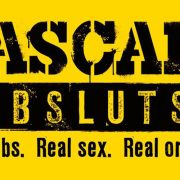5 Things to Remember in Early Sobriety
Kristie Overstreet Ph.D., LPCC, LMHC, LPC, CST
So here you are in early recovery. You’ve decided to get sober, and you’re feeling okay most days. You know that the tough times are coming, and early sobriety isn’t easy. Here are the five things to remember in early recovery to help you stay sober.
1. Fill your downtime
Especially in early recovery, it can be hard to have downtime. Your substance use consumed your time, and now that your sober, what will you do with the extra time on your hands?
Avoid idle downtime by filling your schedule with things to do. Whether it’s visiting friends, going to a 12-step meeting, or working on your to-do list, don’t sit around aimlessly. Your addiction is wanting you to give it an excuse to use, which can be avoided by staying busy.
2. Get back in touch with your hobbies
Many times in active addiction, it’s easy to lose touch with the things you use to enjoy doing. Now that your sober, you have more time to enjoy hobbies or things that interest you.
If you are struggling to remember what these are, think back to what you enjoyed doing growing up. Did you play video games, draw, or play the guitar? Have you wanted to try something new like painting, yoga, or getting a pet? Try making a list of things that interest you and pick a new one each week. Hobbies will help you find enjoyment in the little things that you use to not have time for.
3. Get active
Your body wants to move, and being active in your sobriety is a great coping skill. Your brain used to be stimulated by substances that released feel-good chemicals, and now that they are not triggered, you’ll need to access them through exercise.
Sure, you can’t 100% simulate the high you received from your substance of choice, but being active can access the same area of the brain. Have you ever heard of a runner’s high? It’s the feeling you get after running that makes you feel like you are on top of the world. Find some form of exercise or physical activity that you enjoy.
4. Find your triggers and how to cope
Everyone has different things that trigger them to one to use. Whether it’s people, places, or things, you need to know which ones to watch out for in your recovery. Make a list of things that make you want to use your substance of choice. No matter how small or large they are, add them to the list.
After you have listed your triggers, then identify a coping skill you will use with each of them. For example, going into a particular place where you used may be a trigger for you. One coping skill is to avoid the location for a while, or you will have someone who supports your recovery with you when you go there. Knowing your triggers and how to cope with each of them will help you stay sober.
5. Surround yourself with support
The more supportive people you have around you, the better chance you’ll have in early recovery. Whether it’s friends, family, a sponsor, or other sober people, remember that you are not alone.
You will feel like you’re the only one, so avoid being alone and isolative. Force yourself to get outside and around others. Challenge yourself to reach out to one person each day, even if it’s only a few minutes. Doing this will keep you in the habit of staying connected.
Recovery from your substance of choice is hard, but you’ve done harder things in your life. Your sobriety will be challenged daily, so you’ll have to recommit each day you wake up. As time goes by, it will get easier, but you’ll need to stay focused on doing what’s right for you and not those around you.
Taking it one day at a time can be too difficult, so break it down to one hour or one minute at a time. Your future is worth it, and you can’t have it while you are in active addiction.






